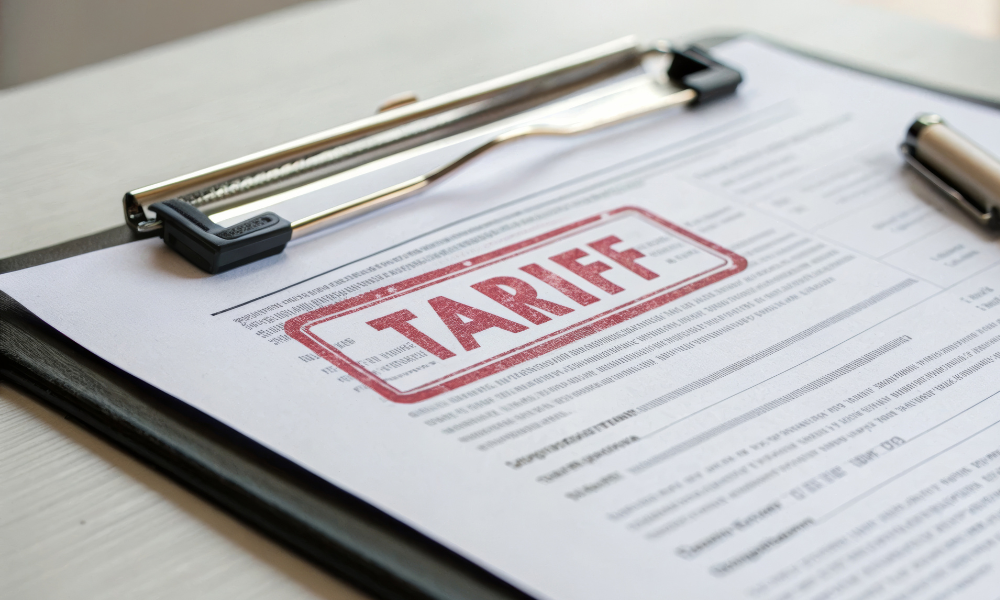Dow tumbles 436 points after US inflation hits 2.7% and crypto legislation stalls in Congress

On Tuesday, a sharper-than-expected rise in US inflation and mounting concerns over potential tariff hikes rattled markets, heightening investor unease over the future path of interest rates and escalating global trade tensions.
According to CNBC, the US consumer price index rose 0.3 percent month over month in June, pushing the annual inflation rate to 2.7 percent—up from 2.4 percent in May and matching consensus expectations.
Core CPI, which excludes food and energy, increased by 0.2 percent month over month and 2.9 percent year over year.
BNN Bloomberg noted that 90 percent of S&P 500 stocks fell following the data release, even though headline figures were in line with forecasts.
Concerns over the inflation impact of tariffs proposed by US President Donald Trump have resurfaced.
As reported by CNBC, Trump confirmed that the US will impose a 30 percent tariff on goods from the European Union and Mexico starting August 1.
Matthew Ryan, head of market strategy at Ebury, stated that “the latest US inflation report practically confirmed that President Trump’s tariffs acted to push up consumer prices in June.”
He also warned that “additional tariff hikes on 1st August would almost certainly herald further inflationary pressures ahead.”
Morgan Stanley Wealth Management’s Ellen Zentner told BNN Bloomberg that “inflation has begun to show the first signs of tariff pass-through.”
Economists pointed to rising costs in imported items like clothes and toys, with the inflation data renewing worries about how upcoming tariffs could constrain the Federal Reserve’s ability to cut interest rates.
Bond markets reacted with volatility.
As per BNN Bloomberg, the 10-year Treasury yield rose to 4.48 percent from 4.43 percent, and the two-year yield climbed to 3.95 percent from 3.90 percent.
Traders reduced bets on multiple rate cuts, though CME Group data indicated that most still expect at least one cut before year-end.
BNN Bloomberg also noted that Fed Chair Jerome Powell wants more data before responding to tariff impacts.
The Dow Jones Industrial Average dropped 436.36 points, or 0.98 percent, to 44,023.29.
The S&P 500 declined by 0.40 percent to 6,243.76, while the Nasdaq Composite rose 0.18 percent to 20,677.80, setting a new record.
Tech stocks, particularly Nvidia, drove the Nasdaq’s gains.
According to CNBC, Nvidia surged 4 percent after stating it hopes to “soon” resume H20 GPU deliveries to China.
BNN Bloomberg reports that the US government assured Nvidia that licences for the H20 chip would be reissued. The company had earlier said that US restrictions on AI chips cut billions from its Q1 results.
Bank earnings offered mixed signals.
As per CNBC, JPMorgan Chase posted better-than-expected profits, but shares dipped 0.7 percent as CEO Jamie Dimon warned about economic risks related to tariffs.
Citigroup rose 3.7 percent after beating forecasts, while Wells Fargo fell 5.5 percent following a reduction in its net interest income guidance. BlackRock shares slipped nearly 6 percent on a quarterly revenue miss.
Canada’s main stock index also declined.
According to BNN Bloomberg, the S&P/TSX Composite Index dropped 140.58 points to 27,058.27, pulled lower by energy and financial sector losses.
The Canadian dollar traded at 72.84 cents US, down from 73.03 cents US. Crude oil fell US$0.32 to US$66.66 per barrel, and gold declined US$4.70 to US$3,354.40 an ounce.
Adding further turbulence, US cryptocurrency legislation hit a snag.
As reported by BNN Bloomberg, a procedural vote in the House of Representatives to advance three crypto-related bills failed, as conservative Republicans joined Democrats in opposing the motion.
The bills included proposals to regulate stablecoins and define when a crypto token is considered a commodity. Another bill would prohibit a US central bank digital currency.
Following the vote, House Speaker Mike Johnson said he would continue talks with lawmakers. Shares of crypto-linked firms fell initially but trimmed losses.
Circle Internet dropped over 4 percent and Coinbase Global slipped 1.5 percent.
Trump also announced on Tuesday that the US struck a trade deal with Indonesia, which committed to purchasing energy, agricultural goods, and planes from the US.
He stated that Indonesian imports would now face a 19 percent tariff, down from a previously threatened 32 percent.
Globally, BNN Bloomberg reported that markets were mixed.
European indexes slipped, while Hong Kong gained 1.6 percent. In contrast, Shanghai fell 0.4 percent after data showed China’s economic growth slowed only slightly under tariff pressure.



